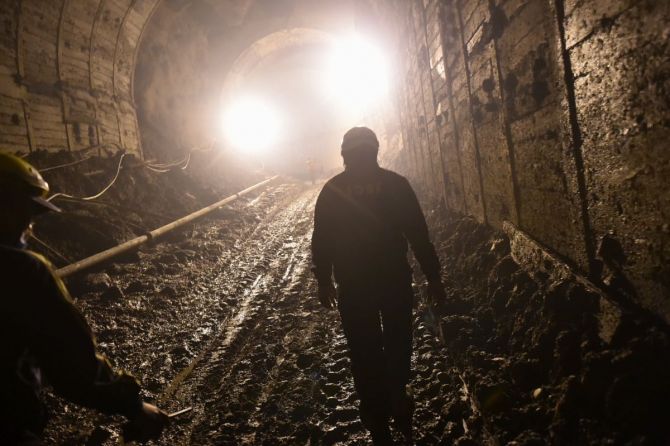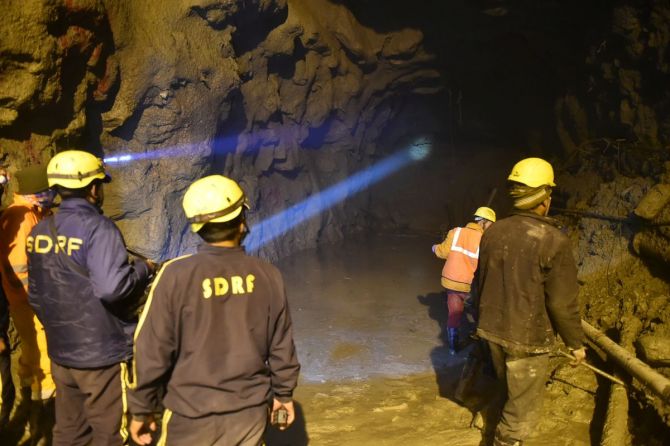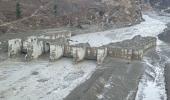Groups of relatives have gathered at the Tapovan tunnel, hoping that their loved ones will emerge alive from its mouth.

Bright lights illuminate the surreal scene deep inside the tunnel: slush and mud, tread marks of vehicles that have been going in and out for the past week, and a single excavator still at work.
Three more bodies of the estimated 30 people initially feared trapped inside the Tapovan hydel project tunnel in Uttarakhand's Chamoli district were pulled out Tuesday.
But the pace of work during the day has been slow, officials said.
Water is seeping out from the yet to be cleared portion of the tunnel, and is being continuously pumped out.
But that also means more slush.

Fewer rescue workers were at the job during Tuesday evening than the day before.
In the evening, a PTI photographer went down the sloping tunnel, from where tonnes of sludge and debris and 11 bodies have excavated since the rescue effort began after a flash flood on February 7.
At around 150 metres, it's easy to see what the rescue workers are up against.
A solid wall of mud blocks the rest of the tunnel.

Munna Khan and Mithlesh Singh, who worked at the devastated NTPC power project on Dhauliganga, are now deployed in the rescue effort at the same.
Singh indicates that he might have been one of the victims had he been on duty that Sunday.
The bodies they found were pressed against the walls or the roof of the choked tunnel.

On most days, an excavator and a truck are put on the job of removing the sludge and the debris.
The excavator dumps its load on to the truck, which then heads back to the mouth of the tunnel.
But the water seepage and the slush on Tuesday have made rescue agencies deploy just the lone excavator which makes trips up and down the tunnel.

Rescue workers typically work four-hour shift, and are relieved by the next batch of men.
Breathing in the tunnel is somewhat harder, as if the oxygen level is depleted.
The Indo-Tibetan Border Force, the National Disaster Response Force and the State Disaster Response Force have been involved in the massive effort.
The disaster was possibly triggered by an avalanche in the upper reaches of the Alaknanda river system.

A surge in the Dhauliganga devastated the National Thermal Power Corporation's Tapovan power project, which has become the focus of the rescue effort.
Before ramming into the Tapovan site, the flood waters devastated the much smaller hydel unit at Raini.
Several villages too were cut off for a few days.
Groups of relatives have gathered at the Tapovan tunnel, hoping that their loved ones will emerge alive from its mouth.
So far, it has been just the bodies.










